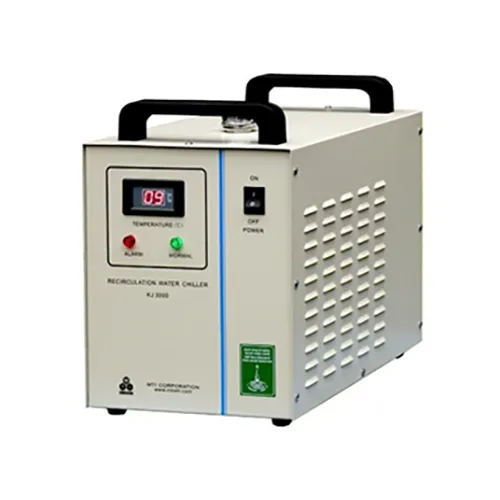
The Benefits of Using a Laboratory Chiller
2025-06-13 16:43What is a laboratory chiller?
A laboratory chiller is a specially designed cooling system used to maintain a constant temperature for laboratory equipment or processes. The working principle is to circulate the cooling fluid (water, ethylene glycol or a specific refrigerant) in a closed-loop system, thereby removing the heat from the equipment or sample. This process ensures that the temperature remains stable and within the required range, which is crucial for the accuracy and reliability of many laboratory applications.
The basic principle of a laboratory chiller includes three main steps:
1. Absorb heat.
2. Heat transfer.
3. Heat dissipation.
The benefits of using a laboratory chiller:
1. Precise temperature control
Laboratory water chillers can provide stable and relatively precise temperature control, which is of great significance for many customers' scientific and industrial applications. This precisely controlled laboratory chiller can maintain the accuracy of the results and the best performance of the equipment.
2. Extend the service life of equipment:
The feature of maintaining a constant temperature through the laboratory chiller can extend the lifespan of laboratory equipment and instruments, prevent the frequent need for maintenance and replacement due to overheating, reduce equipment downtime, and also cut down on unnecessary expenses.
3. Enhance environmental safety:
During the operation of experimental and other equipment, there may be a phenomenon of temperature rise. After using this laboratory chiller, the risk of equipment overheating can be reduced, the safety of the environment can be enhanced, and the safety and integrity of the equipment can also be protected.
4. Improve experimental efficiency:
In some experiments that require precise results, controllable preconditions (such as environmental temperature, etc.) are often needed. After using the laboratory chiller, it can ensure consistent temperature, improve experimental efficiency, avoid repetitive labor caused by variables, and also enhance the accuracy of use.
Factors to consider when choosing a laboratory chiller:
Cooling capacity: Whether the chiller has sufficient capacity to meet the requirements of your equipment.
2. Temperature range: Whether the chiller meets your temperature requirements.
3. Size and floor space: Ensure that the chiller fits your available space and meets any size restrictions.
4. Noise level: Select a cooler with a noise level that suits your laboratory environment.
5. Energy Efficiency: Seek energy-saving equipment to reduce operating costs and environmental impact.

